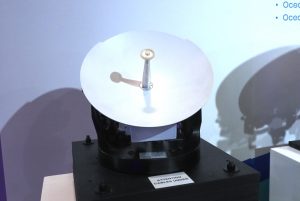
DSEI 2023 – Orbit increases cybersecurity for its SATCOM terminals and widens its naval offer
Cyber attacks being more and more common and becoming a weapon of choice of potential enemies, the Israeli company Orbit, specialised in SATCOM terminals, is increasing their cybersecurity level thanks to its new NetShroud+ solution
Until now most cybersecurity solutions for satellite communications were aimed at protecting data. This is of course a key issue in the SATCOM world, however according to Orbit cyberattacks can be also aimed at cutting satellite links targeting very different areas of those systems. One of those is definitely the algorithms and mechanisms that allow maintaining the antenna oriented towards the satellite. This is true of course for directional antennas, which are those that usually carry the higher amount of data, as they have the higher gain, the wider bandwidth and the higher throughput. These antenna are typical on huge naval platforms, however nowadays we find SATCOM directive antenna also in ground SATCOM on-the-move systems as well as on board combat aircraft, connectivity becoming every day more important in the military world.
Should an enemy target the antenna control system, this would not be any more capable to properly align itself with the satellite, interrupting de-facto the link.
Orbit, which has experience of over 30 years in SATCOM, mostly in the naval domain, has added a feature to its NetShroud+ in the form of a patented solution provided by Embedded Solutions, another Israeli cyber company, which avoids the risk of interferences with the pointing mechanism. According to Orbit the solution does not generate any impact on the antenna control unit.
Orbit integrates this solution in its cybersecurity suite and thoroughly tested it, and introduced it into the market at DSEI 2023, although it started showing it to its customers two months before the exhibition, all of them ignoring this type of threat before they were told by company representatives, according to Orbit. The system can also be retrofitted to existing terminals, however no requests in that sense has yet materialised. Orbit is proposing the solution not only for its naval terminals, such as its OceanTRX series, but also for ground SATCOM stations deployed to remote locations.

Beside launching its new cyberdefense solution the company based in Netanya, some 25 km north of Tel Aviv, is now proposing its MPT30 and MPT46 multi-purpose terminals also for naval applications. Designed for aircraft applications, they are small and light and therefore fit perfectly onto small naval vessels such as fast patrol boats. Orbit decided to adapt them to naval use considering the strong demand that is emerging for SATCOM on-the-move in such category of ships. Designed to withstand much demanding stress conditions in terms of acceleration and vibration, the terminals are now being provided with a radome that covers the dish antenna. As said the weight is one of the key competitive factors; the MPT30,with its 30 cm diameter antenna, weighs only 9.5 kg, while the MPT46, with a 46 cm dish, weighs 14.25 kg this being a considerable advantage considering that SATCOM terminals tend to be installed high on superstructures, thus moving up the centre of gravity. This might be even more critical for unmanned surface vessels, that might be even smaller and lighter than manned ones. EDR On-Line understood that Orbit is talking with a “relevant stakeholder” on the subject of installing an MPT30 on a submarine, no more details being provided, the most critical issue here being the radome.
Photos courtesy P. Valpolini



